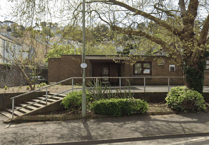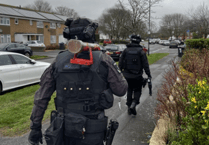AN independent investigation into who knew about jailed paedophile and former East Devon councillor John Humphreys has found only one officer at the council was aware of the investigations and that he was instructed by police not to inform anyone else.
Humphreys was an East Devon District Council (EDDC) councillor between 2007 and 2019 and became an honorary alderman in December 2019. He had also been mayor of Exmouth.
In August 2021 Humphreys was found guilty of a series of historic sexual offences against children and sentenced to 21 years in prison.
Since his conviction, the council and the local Conservative Party have faced questions over how much was known about police investigations into him.
But an independent report by Verita, a private investigations company, reveals that only the council’s monitoring officer (MO) was aware Humphreys was under police investigation. It emphasises that the responsibility for the offences lies with Humphreys and not the council, its councillors or officers.
The officer, who is named in the report and who has since left his job, learned of those investigations at a March 2016 meeting at Devon County Council (DCC) for officers who have concerns about adults who work with children and young people.
He did not disclose details of the information to the district council because he said 'It was strictly confidential and due to data protection issues.;
At that time, Humphreys had not been arrested and was unaware any allegations had been made against him, or that an investigation was ongoing.
Although the report suggests rumours had been circulating about Humphreys, no-one raised concerns with EDDC officers.
Verita’s report says police direction about confidentiality appears to have been more stringent than advice usually given by the county council and the police at Local Authority Designated Officer (LADO) meetings.
The report says: 'In our view, the MO was in a clear and unambiguous position in light of the police advice. If he had shared information with anyone else, he would have breached the stringent confidentiality requirements required by the police. Had he done so it is highly likely that this would have prejudiced the police investigation.'
EDDC’s monitoring officer was effectively prevented from sharing information with his managers and could not give any information about the allegations to political group leaders or the chair of council.
It was Humphreys’ choice to remain a councillor despite the fact he was under police investigation and the report criticises the code of conduct because it says: 'Criminals and those flouting the rules are routinely unlikely to do the honourable thing and self-report their actions to appropriate authorities.'
However, individual councils are not in a position to alter their rules without a change in the law and the behavioural standards set for councillors primarily rely on individuals doing the 'right thing' in an honest and open manner. Humphreys, says the report, did not do this.
The report recommends EDDC should ensure anyone attending LADO meetings in future should not go alone and officers, the chair of council and group leaders should encourage all councillors to attend any available safeguarding training.
It also suggests EDDC should consider reforming the process of appointing honorary aldermen; an award made by many councils to former councillors in recognition of their civic contributions.
The report will be discussed at a special meeting of the full East Devon District Council on Thursday.





Comments
This article has no comments yet. Be the first to leave a comment.